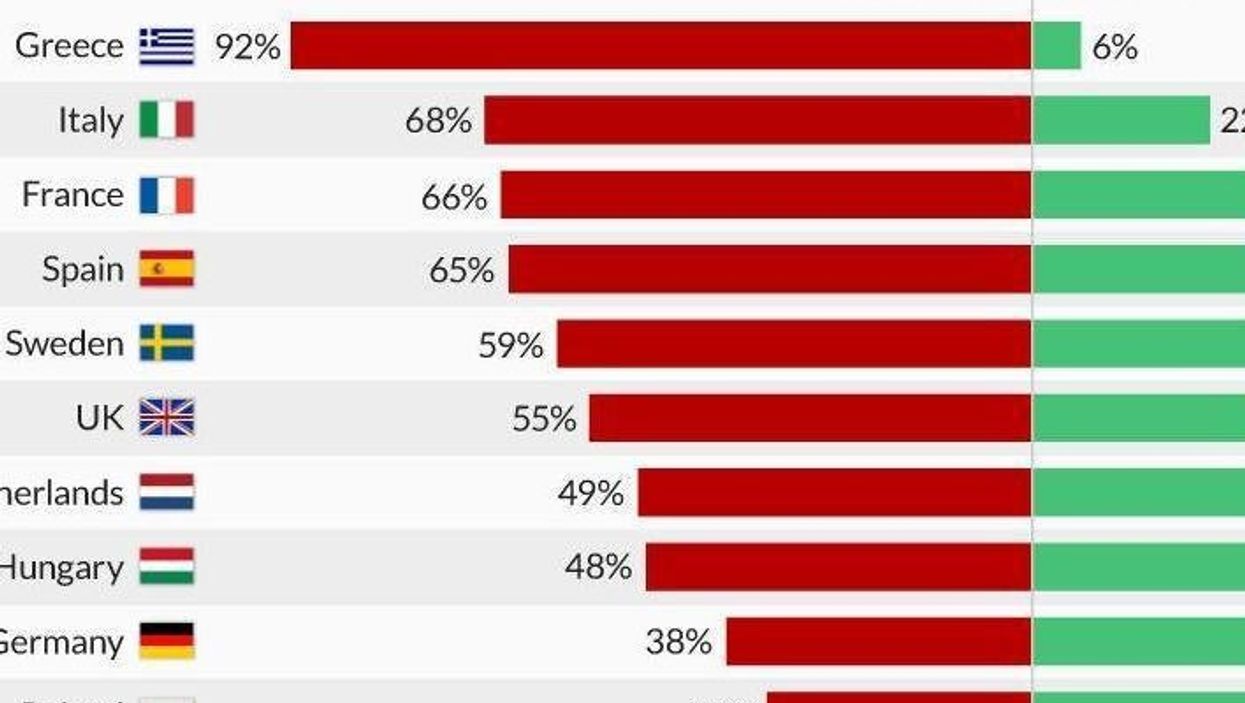News
Narjas Zatat
Nov 30, 2016

Picture: Statista
Italy’s upcoming referendum on a constitutional change that would strip the Senate of the vast majority of its powers could see Prime Minister Matteo Renzi resign, opening the door to populist, anti-establishment politicians.
The president pledged to resign on a ‘no’ majority vote - which seems to be in the cards for the country.
However Italy is but one example of a population who have grown frustrated with the political status quo; Scotland’s referendum for independence in 2014 was one early sign, and results of the British EU referendum this year only confirmed the lack of trust people have towards the 'elite'.
One of the reasons for the declining trust is the high rate of unemployement in a number of EU countries. Greece hasn’t recovered from the economic crash of 2008 and, in 2015, 73.1 per cent of people who were unemployed were out of work for at least 12 months; Italy comes in at 58.9 per cent, France at 44.3 per cent and Germany at 44 per cent.
A recent look at unemployment from Pew Research Centre shows that scepticism amongst Europeans is high – an increasing number are dissatisfied with the EU’s handling of economic policy.
Statista compiled the data into a graph, paying attention to southern European nations – which have been particularly hard hit by the economic downturn of the last decade.
Unsurprisingly, 92 per cent of Greeks disapprove of the EU’s economic strategy, closely followed by Italy at 68 per cent and France at 66.
Over half of the UK – at 55 per cent – also disapprove, which would probably explain the referendum result.
HT Wall Street Journal
More: The countries most likely to follow Britain and leave the EU next
Top 100
The Conversation (0)













